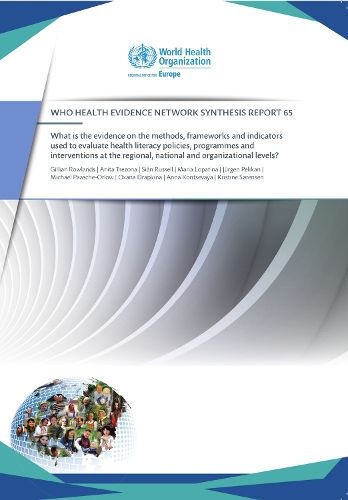Readings Newsletter
Become a Readings Member to make your shopping experience even easier.
Sign in or sign up for free!
You’re not far away from qualifying for FREE standard shipping within Australia
You’ve qualified for FREE standard shipping within Australia
The cart is loading…






Health literacy can be defined as the capacity of individuals, families and communities to access, understand, appraise and apply health information in order to make judgements and take decisions in everyday life concerning health care, disease prevention and health promotion in order to maintain or improve their quality of life. It is considered to be a social determinant of health, and one of the key pillars in health promotion. Low health literacy is associated with poorer health, more illness and health inequalities, and it may make health systems less cost-effective. Evidence from the 2011 health literacy survey indicated that almost half of the adult population in eight Member States of the European Union had suboptimal general health literacy. Responses have included initiation of health literacy networks, policies, programmes and interventions at the regional, national and organizational levels. These initiatives require monitoring using frameworks and indicator sets that produce consistent and comparable population data and evaluation to determine the effectiveness of the policies and interventions.
$9.00 standard shipping within Australia
FREE standard shipping within Australia for orders over $100.00
Express & International shipping calculated at checkout
Health literacy can be defined as the capacity of individuals, families and communities to access, understand, appraise and apply health information in order to make judgements and take decisions in everyday life concerning health care, disease prevention and health promotion in order to maintain or improve their quality of life. It is considered to be a social determinant of health, and one of the key pillars in health promotion. Low health literacy is associated with poorer health, more illness and health inequalities, and it may make health systems less cost-effective. Evidence from the 2011 health literacy survey indicated that almost half of the adult population in eight Member States of the European Union had suboptimal general health literacy. Responses have included initiation of health literacy networks, policies, programmes and interventions at the regional, national and organizational levels. These initiatives require monitoring using frameworks and indicator sets that produce consistent and comparable population data and evaluation to determine the effectiveness of the policies and interventions.